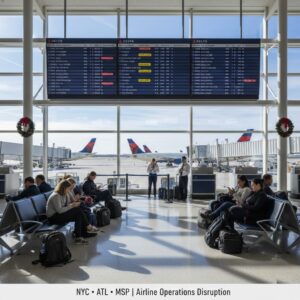The UK economy suffered a £2.2 billion loss in international tourism revenue in 2024 compared to pre-pandemic levels, driven by higher taxes, reduced marketing budgets, and restrictive policies, according to the World Travel & Tourism Council (WTTC). Despite the sector contributing £286 billion (10% of UK GDP) and supporting 4.2 million jobs, international visitor spending remains 5.3% below 2019 levels at £40.3 billion.
Key Factors Behind the Decline
- Policy Barriers: The Electronic Travel Authorization (ETA) fee, removal of VAT-free shopping, and rising Air Passenger Duty have made the UK less competitive than European rivals.
- VisitBritain Cuts: A 40% budget reduction for the UK’s tourism marketing agency has hampered efforts to attract high-spending global travelers.
- Cost Concerns: The UK is now among Europe’s most expensive destinations, deterring tourists as rivals like Spain and Italy rebound faster.
Long-Term Risks
WTTC President Julia Simpson accused the government of “sabotaging” tourism through “deliberate policy choices,” warning that the UK risks permanent declines in global competitiveness. While the sector’s GDP contribution has grown 3.9% since 2019, job recovery lags, and visitor spending trails peers.
Call to Action
The WTTC urges reinvestment in VisitBritain’s budget, reversal of tax increases, and streamlined visa processes to revive the UK’s appeal. Without intervention, the £2.2 billion annual loss could become entrenched, threatening jobs and regional economies reliant on tourism.
Key Takeaways:
- Loss: £2.2BN in visitor spending vs. 2019.
- Causes: ETA fees, VAT-free shopping removal, higher taxes.
- Sector Impact: 10% of UK GDP, 4.2MN jobs at risk.
- Outlook: Urgent policy changes needed to avoid long-term decline.














More Stories
UK Tourism Explosion 2025 England Leads with NI, Scotland & Wales Setting Records!
Air Canada, BA, LATAM, Delta & AA Surge Miami Flights: SIRO Brickell Wellness Hotel Revolution 2030!
France, USA, Spain Dominate 2025 Travel: Top Apps for Effortless Flights & Hotels!